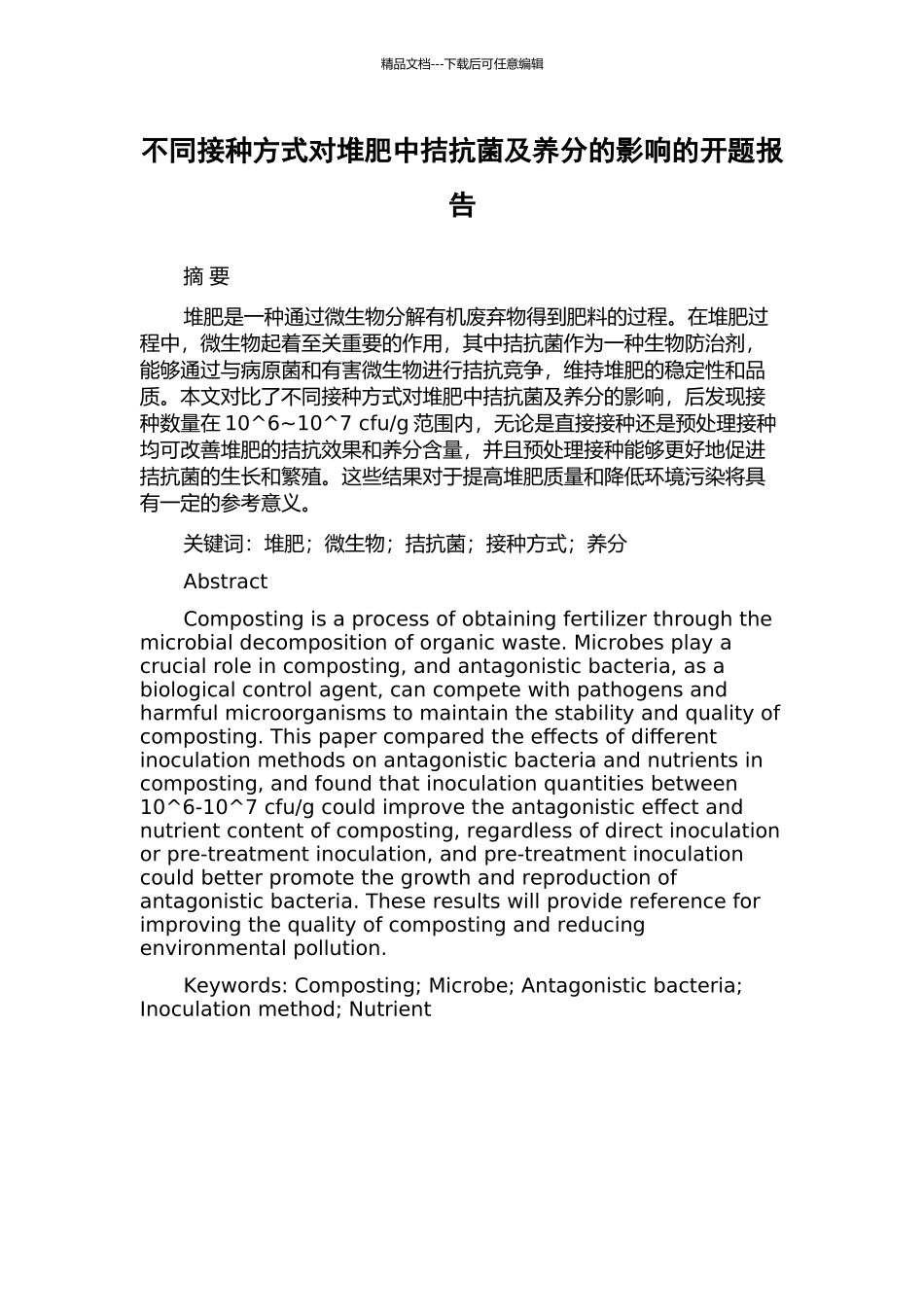精品文档---下载后可任意编辑不同接种方式对堆肥中拮抗菌及养分的影响的开题报告摘 要堆肥是一种通过微生物分解有机废弃物得到肥料的过程。在堆肥过程中,微生物起着至关重要的作用,其中拮抗菌作为一种生物防治剂,能够通过与病原菌和有害微生物进行拮抗竞争,维持堆肥的稳定性和品质。本文对比了不同接种方式对堆肥中拮抗菌及养分的影响,后发现接种数量在 10^6~10^7 cfu/g 范围内,无论是直接接种还是预处理接种均可改善堆肥的拮抗效果和养分含量,并且预处理接种能够更好地促进拮抗菌的生长和繁殖。这些结果对于提高堆肥质量和降低环境污染将具有一定的参考意义。关键词:堆肥;微生物;拮抗菌;接种方式;养分AbstractComposting is a process of obtaining fertilizer through the microbial decomposition of organic waste. Microbes play a crucial role in composting, and antagonistic bacteria, as a biological control agent, can compete with pathogens and harmful microorganisms to maintain the stability and quality of composting. This paper compared the effects of different inoculation methods on antagonistic bacteria and nutrients in composting, and found that inoculation quantities between 10^6-10^7 cfu/g could improve the antagonistic effect and nutrient content of composting, regardless of direct inoculation or pre-treatment inoculation, and pre-treatment inoculation could better promote the growth and reproduction of antagonistic bacteria. These results will provide reference for improving the quality of composting and reducing environmental pollution.Keywords: Composting; Microbe; Antagonistic bacteria; Inoculation method; Nutrient
